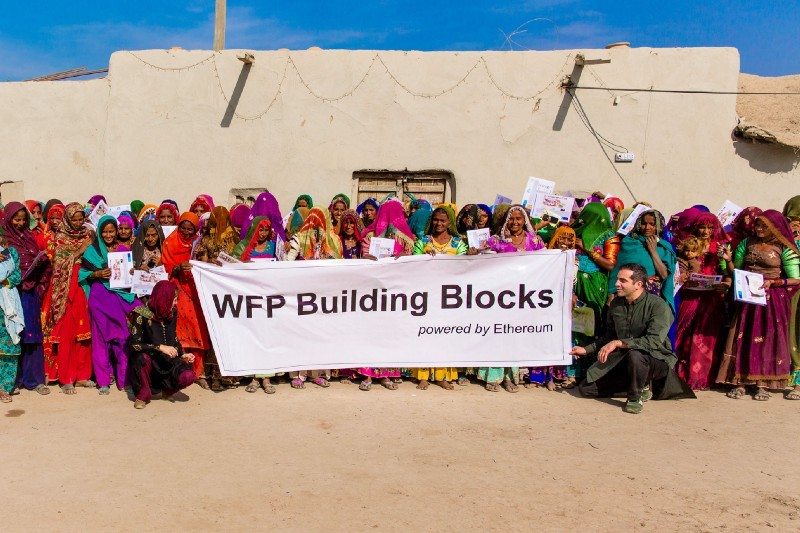Blockchain technology has become popular across various industry segments due to its versatile nature. Applications built on the distributed ledger can be implemented to solve a range of problems, improve the efficiency of existing systems and even bring in transparency. All these qualities are something critical in today’s social sector. Realizing its potential advantages, the United Nations World Food Programme has gone ahead to explore and implement the crypto-technology in its operations.
The World Food Programme, working across the globe to fight hunger and malnutrition is making use of the Ethereum blockchain to provide the much-needed assistance to the hungry population in the developing world. The pilot program called “Building Blocks” has successfully demonstrated its capability by enabling the organization to quickly and safely deliver aid to the needy. Being tested in Pakistan, the Building Blocks program offers food as well as cash assistance for sustenance and procurement of necessary supplies to the needy.
Until now, providing cash assistance has been a tricky part for many organizations due to lack of transparency, corruption, and misuse of funds. But with transparency and immutability offered by blockchain platforms like Bitcoin and Ethereum, things have become much easier. According to reports, the pilot program in Pakistan’s Sindh province saw the disbursal of food and cash authenticated and recorded over a public blockchain using smartphones.
The records generated on the blockchain were used to compare disbursements with entitlements to ensure they match. The use of blockchain in the WFP has brought in accountability to the whole process. The WFP blog quotes Farman Ali from its Karachi provincial office saying,
“Blockchain can revolutionize the way WFP delivers assistance to vulnerable families across the globe. It can bring us closer to the people we serve and allow us to respond much faster.”
The Ethereum blockchain application is a project of the World Food Programme’s Innovation Accelerator. The accelerator is created for one purpose — to make sure no one goes hungry by supporting new ideas, tools, and solutions that have the potential to achieve it. Based out of Munich, Germany WFP Innovation Accelerator has received the recognition of being Fast Company’s Most Innovative Companies of 2017 in the food sector.
Ref & Image: WFP Insight























